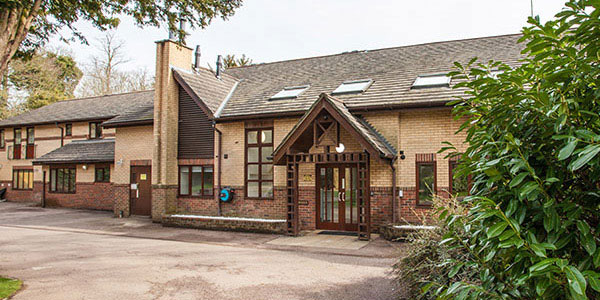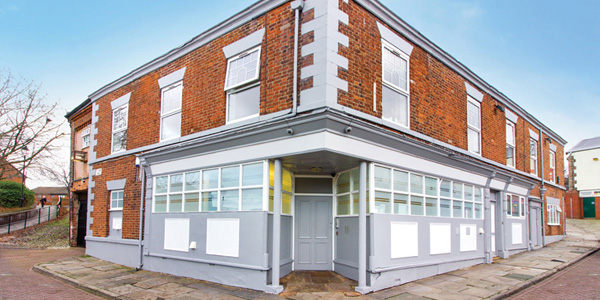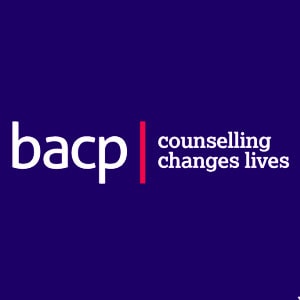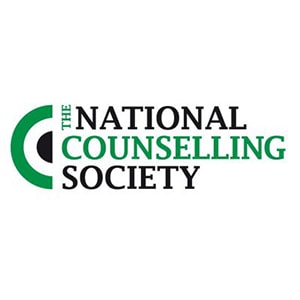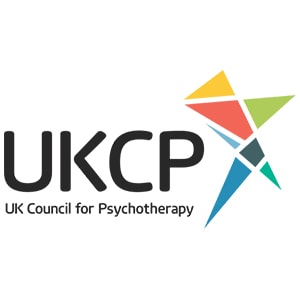Alcohol & Drug Rehab in Nottingham
Nottingham may be a beautiful, historic, vibrant city, and a desirable place to live, but that does not render it immune to the destruction caused by addiction to alcohol, illegal drugs and/or prescription medicines; like everywhere else in the UK, Nottingham is proving increasingly susceptible to that destruction as austerity continues to bite and profound concerns for the future loom over the collective head of British society.
If you live in or near Nottingham and are suffering from addiction, you must not allow itself to give in to despair: hope really is closer than you may think – as is a life free of substance abuse. Read on to find out how rehab can turn your life around and set you back on a path towards happiness and success.
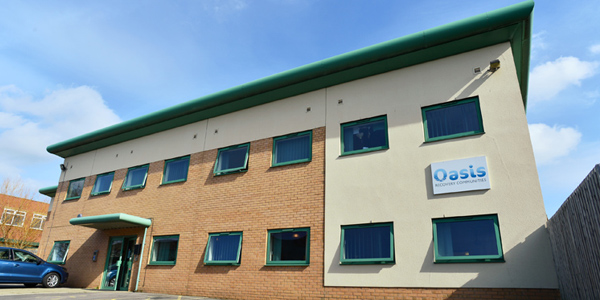
Built in 2009, Oasis Bradford was originally commissioned by the Department…
- Private
- 24/7 Nursing
- 24/7 nursing
- Residential
Featured Rehabs
Banbury Lodge is a private UKAT rehab facility based in Banbury, Oxfordshir…
Liberty House Clinic is a fully furbished detox and rehabilitation facility…
Oasis Runcorn is quite unique detox and rehab unit in offering two treatmen…
-
0 review
- Outpatient Option
- Private
- One to One
-
0 review
- Outpatient Option
- Private
- One to One
-
0 review
- Outpatient Option
- Private
- One to One
-
0 review
- Outpatient Option
- Private
- One to One
- Load More
Drug & Alcohol Rehab Services in Nottinghamshire
- A
- B
- C
- D
- E
- F
- G
- H
- I
- J
- K
- L
- M
- N
- O
- P
- Q
- R
- S
- T
- U
- V
- W
- X
- Y
- Z
What Is Rehab?

Rehab – more correctly, “residential rehabilitation” – is a term that describes both the process of staying at a dedicated addiction treatment facility, and the facility itself. While methods vary from one facility to another, rehab typically consists of a detoxification (“detox”) phase, during which a patient’s system is cleansed of substances of abuse; followed by a period of therapy during which the root causes of their addiction are addressed, and they begin the process of resuming a substance-free life.
Rehab provides patients with the assistance of highly trained medical professionals familiar with the nature of addiction, who are on hand 24/7 to make the withdrawal and therapy phases as safe and as comfortable as possible; this allows patients the psychological space to focus entirely on their recovery and well-being, secure in the knowledge that rehab’s confidential nature means that their condition will remain secret.
Rehab is widely considered to be the most effective approach to the treatment of addiction, since it tackles both the immediate challenges of physical dependency and the longer-term ones of psychological addiction.
How Can I Get Someone into Rehab?
It is a well-known truism that an addict will only be able to benefit from treatment when they truly want to recover; until then even the most capable therapist is unlikely to make much headway against the overwhelming force of physical and psychological addiction. However, it is crucial to act as soon as an addict reaches the point of admitting to their need for help: in the treatment of addiction time is of the essence, as the longer a person labours under the burden of addiction the greater the chance that they will fall victim to overdose or to a drug-related accident or act of violence.
With this in mind, the lengthy waiting lists for NHS services (suffering under the strain of high and growing demand right across the country, including in Nottingham specifically) become less of an irritation and more of a tragedy in waiting. If you or a loved one are suffering from addiction and requiring urgent help, do not risk becoming this tragedy: instead, call 0800 024 1455 today to speak with an addiction specialist about which private options may be available to you.
Advantages of Private Rehab
There are many advantages to rehab – perhaps too many, indeed, to list here, though some of the most important may be outlined briefly. As noted previously, rehab provides a peaceful, secluded, secure and confidential setting in which patients can concentrate fully upon their treatment and recovery, well away from the environment of daily life in which they have succumbed to substance abuse and eventually to addiction.
The first phase of rehab, following admission and assessment, is detoxification (“detox”) during which a patient is likely to go through withdrawal. Experiencing withdrawal without medical assistance is extremely dangerous; in rehab, very experienced medical professionals will be on hand 24/7 to ensure that this process is undergone a safely as possible and with the maximum degree of comfort (which may involve the provision of appropriate medication).
Once a patient’s system has been cleansed of substances of abuse, they are able to proceed to a therapy phase during which a variety of therapy methods and models may be provided – in both group and one-to-one settings – aimed at revealing and addressing the root causes of a patient’s addiction, and equipping them with appropriate defence mechanisms against relapse.
Following a stay in a quality rehab – which will also see patients provided with bespoke dietary and fitness plans along with a broad range of other facilities – a recovering addict will benefit from a year’s free aftercare, on the basis that recovery is not complete simply upon leaving rehab, but is an ongoing process requiring constant dedication.
What Does Rehab Cost in Nottingham?
The cost of private rehab in or near Nottingham can vary significantly by treatment programme, and depending on which of a variety of optional extras are selected.
As a rough guide, standard costs range from between £5,500 and £11,000 per month, though the cheapest rehab treatment can start from as little as £834 per week. For more details, call 0800 804 4755.
NHS Addiction Treatment Options near Nottingham
For some addicts, private rehab may not be an option: perhaps it will be impossible to spend a significant period away from family commitments or professional obligations; or perhaps the cost of rehab may be viewed as being prohibitive. If this is the case for you, do not despair: various NHS and charity resources can be found in and near Nottingham which can help you or a loved one overcome even the longest standing addiction. Discuss these resources with your GP, who will be able to tell you which might be open to you and appropriate for your specific situation.
Advantages of NHS Treatment
The most obvious advantage of NHS treatment is financial: as noted above, private rehab comes at a cost (although compared with the costs – financial and otherwise – of sustaining an addiction, this investment may be considered minor) while NHS options are free at the point of use. They are also very accessible geographically – the NHS operates in every corner of the country – and of a high standard of service; however, it should be noted that quality does vary from one NHS trust to another and that, as discussed above, waiting times can be prohibitive.
Addiction Support Groups
A number of organisations exist across the country to provide assistance to recovering addicts, and some of these operate a support group model. Support groups are groups of individuals who are themselves recovering addicts – some only recently free from addiction, while others may have been clean for many years – and who come together at regular meetings to give and take mutual support: sharing their stories of addiction, giving advice on how to resist relapse, showing solidarity and sympathy when group members are struggling, and providing the simple companionship which can mean so much in times of difficulty and loneliness.
Support group attendees can come from all walks of life, brought together by their shared experience of addiction and recovery; typically, attendance at support groups is free and the only qualification for participation is a commitment to leading a life free of substance abuse.
The most famous support group organisation, and the one on which most others are modelled, is Alcoholics Anonymous (AA) which was founded in 1935 and runs on a 12-step programme of personal and spiritual development, with one of the steps being a recognition that a higher power – such as God – can assist with an alcoholic’s recovery.
Narcotics Anonymous (NA), founded in 1953 and based directly upon the AA model, is the second-largest support group organisation worldwide and caters to recovering drug addicts specifically. In a similar vein, but supporting those recovering from addictions to specific substances, are Cocaine Anonymous (CA), Heroin Anonymous (HA), Marijuana Anonymous (MA) and Crystal Meth Anonymous (CMA), all of which operate 12-step programmes. There are also support groups such as Al-Anon and Nar-Anon assisting the families and friends of addicts which typically hold meetings alongside those for the addicts themselves.
Support groups typically meet weekly, though each local chapter is managed independently and meeting times and venues are subject to change. To find information on meetings in or near Nottingham, see the relevant websites: Alcoholics Anonymous; Narcotics Anonymous; Cocaine Anonymous; Heroin Anonymous; Marijuana Anonymous; Crystal Meth Anonymous.
Types of Counselling

A form of ongoing assistance during recovery which is often especially beneficial for people with extremely busy schedules is individual counselling. Private addiction counsellors operate very much like regular psychotherapists (though with an obvious emphasis on addressing the causes and consequences of addiction) and offer a broad variety of therapy models and different approaches to treatment – some extremely niche and alternative.
Typically, private counsellors can be seen by appointment, usually on a weekly basis but with a great degree of flexibility governing the relationship. Fees are usually charged per appointment; some councillors are available on an emergency basis although most limit themselves to pre-agreed working hours.
Private addiction counsellors are often sought out by recovering addicts who have gone through full treatment programmes at rehab and who desire ongoing professional assistance at this phase of their recovery, as well as by professionals at the other end of the journey who have not yet been to rehab but who wish to try to manage their addictions prior to taking that step.
How to get to Banbury Lodge from Nottingham
Banbury Lodge is situated in a delightful, peaceful rural setting in the historic Oxfordshire town of Banbury. Its state-of-the-art facilities and highly experienced medical and support staff create the ideal environment in which to address the key questions at the heart of recovery from addiction, and to embrace its fully comprehensive holistic rehabilitation programme. It is also one of the only rehabs in the UK offering treatment to people aged between 16 and 18 struggling with addictions.
To get to Banbury from Nottingham, take the A52 to the A453, and at Kegworth Interchange join the M1 towards London. At junction 21, take the M69 to Coventry, continuing onto the A46 (Coventry Eastern Bypass). Keep on this road until merging onto the M40; stay on the motorway until junction 11, then take the A422. Follow this road to the A4260, then follow signs to the town centre.


